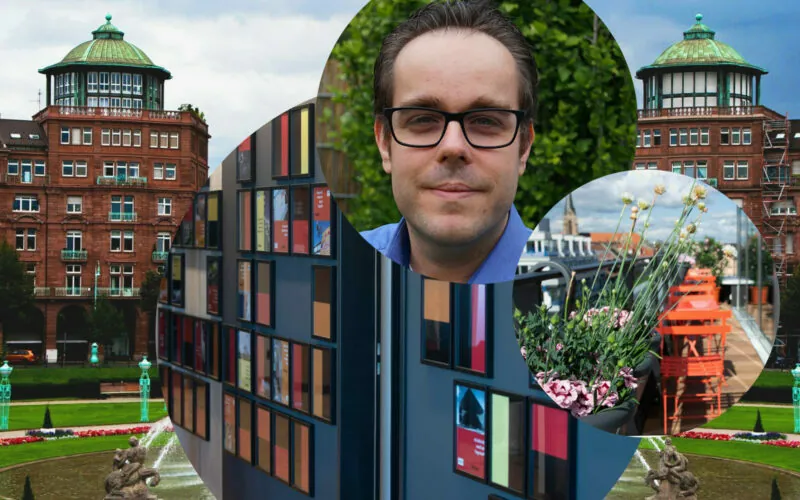From a Retail Company to SAP Commerce Consulting – Why the Leap is Worthwhile
June 5, 2020

June 5, 2020

Before your change to valantic, you held an internal role at a retail company. We would like to know what were your first impressions of valantic?
Something I noticed on the very first day was that at valantic, everybody is grateful when new people join the team, especially people who bring a fresh view of things. New team members are regarded as a win. My colleagues appreciate my input, and I think that’s great. I was received here with open arms and I work in a very good, collegial atmosphere.
The concern here is not for individuals to raise their own profiles and use their elbows; instead, the focus is truly on the team. Furthermore, nobody can hide; for helping shape what’s going on isn’t a request, but a requirement. And the interaction also works across various locations at home and abroad. Of course this requires discipline of everybody, but I was very surprised how well this can work.
Something else I’ve noticed: we work in smaller, powerful project teams and our consulting is extremely solution-oriented. That’s why decisions are not debated endlessly, they’re made quickly. One the one hand, this is due to valantic’s lean structure; on the other hand to the fact that we as the project team don’t have time to linger over decisions. This way, we make rapid progress and I really like this.
What were your reasons for changing from the customer side to consulting?
At some point, I had the feeling that I knew what I was doing. That’s why I really wanted to try something new.
I wouldn’t have thought initially that I would switch to a consulting company. I had some preconceptions about that. For example, that external consultants come to a company, re-plan everything, and don’t really consider what customers want. I’ve learned better about this. Also, I feared being regarded exclusively as a resource. Luckily, my preconceptions have not been confirmed, for even during the job interview, I noticed that at valantic, employee satisfaction is just as important as customer satisfaction.
It was also important to me that I can work on a small team on which everybody does his or her part and teamwork doesn’t mean “somebody will take care of it.” Here I have colleagues who are all highly motivated and want to accomplish something. Everybody has the same possibilities and decisions are made as a team; everyone gets a say.
Last but not least, I was seeking the freedom to develop. I didn’t want to be tied to a particular topic just because I know a lot about it. That’s why I like the role concept at valantic. Here, I can develop some depth in addition to more breadth.
How has your work-life balance changed?
The adjustment to the new organization and the projects was very challenging at first. For me, it was new to travel to the customer’s site for projects and to visit colleagues abroad on-site.
However, I have learned that it is important to meet with customers regularly on-site. Face-to-face exchange is fundamentally different than digital exchange.
Something I especially like is that I can plan my trips myself and nobody tells me that I have to do this. I can play an active role here and determine my own schedule. That’s very comfortable.
I also like that there’s so much flexibility in choosing where to work. I work 1-2 days a week from home and the rest in the Mannheim or at the customer’s. That’s great for me. And this is exactly what I was promised in the job interview. That promise has been kept 100%!
How do your current customers profit from the fact that until recently, you were seeing things through the customer’s eyes?
At the moment, we have a customer who wants to do exactly what I did when I was on the customer side. My customers are thankful that there is somebody working on the project who can regard and assess the topic from both perspectives. I am familiar with their processes, I know how things work in larger companies; where there are possibilities but also hurdles. This change of perspective paired with a healthy pragmatism are the points from which the customer profits the most.
As a consultant, you should always ask yourself: “What might an appropriate solution look like, one that will satisfy both sides?” But this doesn’t always happen in practice.
Frequently, the external consultant wants a solution without considering how much time and effort has to be invested from the customer side. But many customers don’t have this time. These customers are simply grateful when somebody comes along who says “that’s as great solution, but I know you don’t have the time for that, so let’s try it another way.” I bring this pragmatism to the table and customers like this.
What, in your opinion, does one need to develop from an internal role into external consulting?
A good sense of humor! But all joking aside… It helps a lot that I approach topics right away when I see something that could be improved. I have the urge to change things, to take responsibility, and to help. That’s very important to me. Everyone should take the time to help others.
Surely people also like that I am passionate about many topics – and the nice things is that here I have the opportunity to approach and implement precisely these topics.
An absolute plus is that I am a passionate hobby chef and I share food I have cooked with my team at lunchtime. 😉
Don't miss a thing.
Subscribe to our latest blog articles.